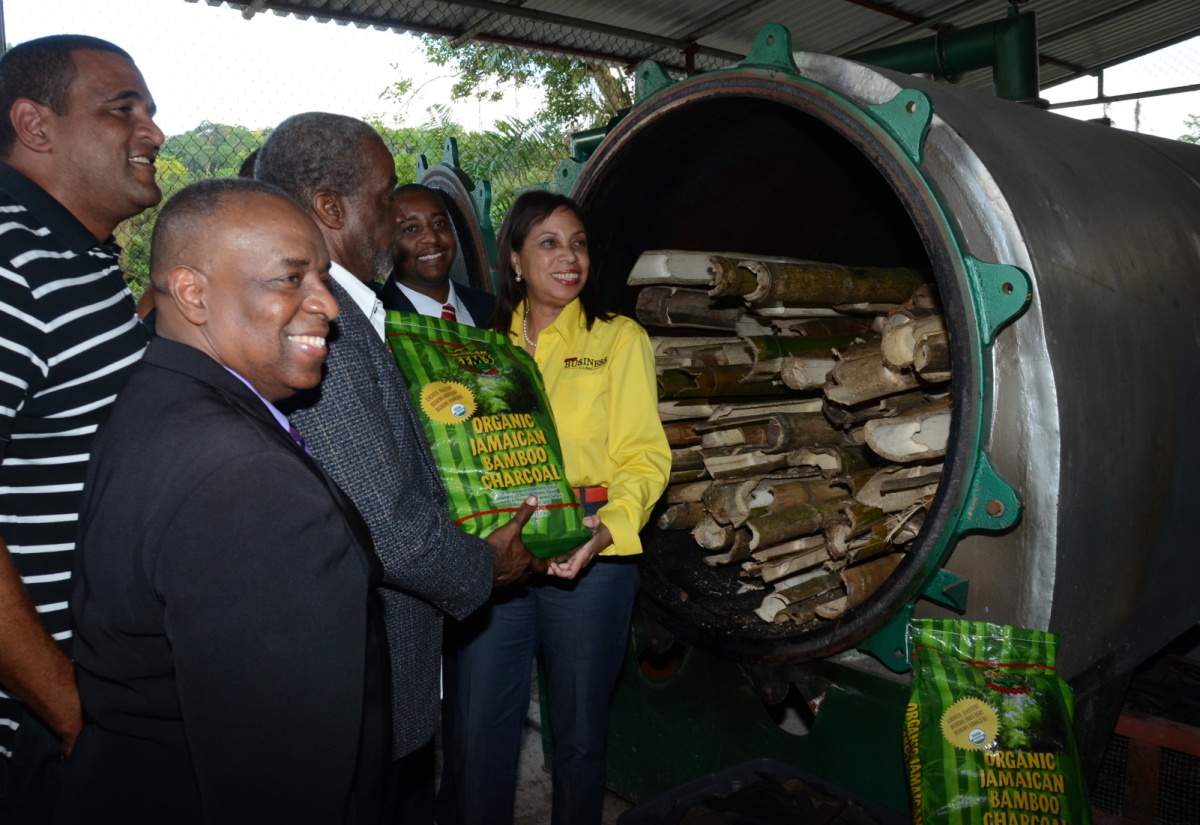Govt Looking to Use Mined-Out Lands for Bamboo Cultivation
By: , December 21, 2014The Key Point:
The Facts
- State Minister for Industry, Investment and Commerce, Hon. Sharon Ffolkes-Abrahams, said discussions towards this effort, are underway between her Ministry and the Ministry of Water, Land, Environment and Climate Change.
- She said the aim is to tap into the lucrative international market for bamboo products, which is valued at US$270 million.
The Full Story
The Government is looking into the feasibility of using mined-out bauxite lands for the wide-scale planting of bamboo, and the growing of edible bamboo shoots.
State Minister for Industry, Investment and Commerce, Hon. Sharon Ffolkes-Abrahams, said discussions towards this effort, are underway between her Ministry and the Ministry of Water, Land, Environment and Climate Change.
She said the aim is to tap into the lucrative international market for bamboo products, which is valued at US$270 million.
The Industry State Minister was speaking on Friday (Dec. 19), at the opening of Jamaica’s first organic bamboo charcoal factory on Nelson’s Super Farm in Pembroke Hall, St. Mary.
She welcomed the opening of the charcoal plant, noting that it is part of efforts by the Government to develop an indigenous bamboo industry.
She noted that the Bureau of Standards Jamaica (BSJ) has engaged several potential investors and stakeholders, and has been working on developing the necessary standards to ensure consistency and quality in the bamboo industry.
She informed that the Planning Institute of Jamaica (PIOJ), as part of its urban renewal programme is also “actively pursuing possibilities with us.”
According to Mrs. Folks Abrahams, the development of a bamboo industry will not only provide economic benefits, but will also have positive impacts on the environment.
“The planting of new bamboo acreages will ensure sustainability of the new bamboo industry, as well as assist in the mitigation and adaptation to climate change. The future for us, as a nation, is looking bright, through the development of the bamboo industry, and in our logistics-centred economy and growth strategy,” she noted.
Chairman of the BSJ, Professor Winston Davidson, also welcomed the new entity, and stressed the need for quality products for the local and international markets.
He said there is great potential for bamboo to contribute to the economy through job creation.
“We are developing a new standards-led, market driven bamboo industry, and to create new jobs, through the development of new bamboo value chains,” he said.
Under the Government’s bamboo project, focus is being placed on the development of charcoal, cosmetics, furniture, lumber, water filters, houses, and consumable products from the plant.
Meanwhile, the principals behind the bamboo charcoal facility said they are actively putting together business plans for further investment in the factory to meet local and international markets.
The demand for the product in the United States alone is estimated at 12 million pounds per annum, valued at approximately US$24 million.


